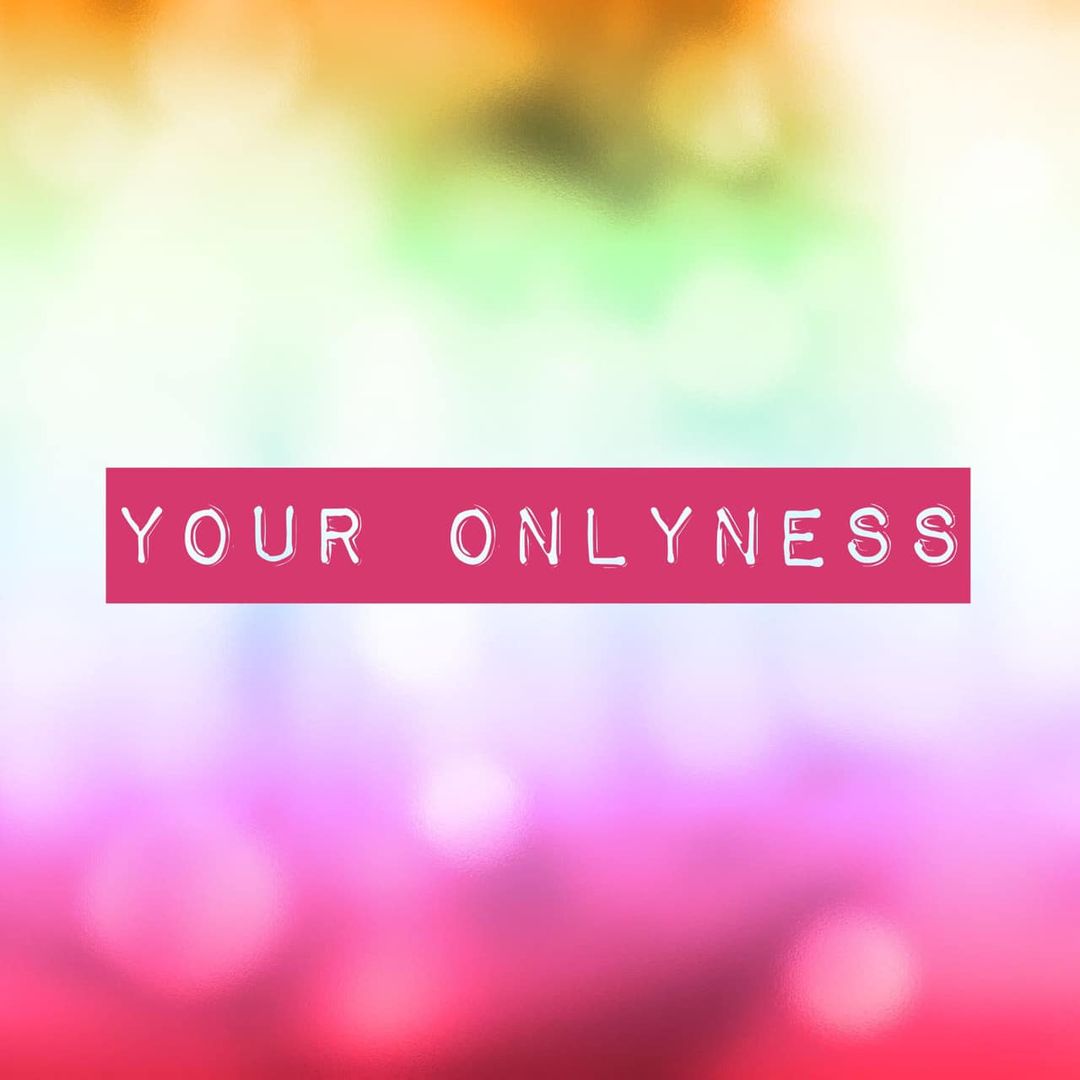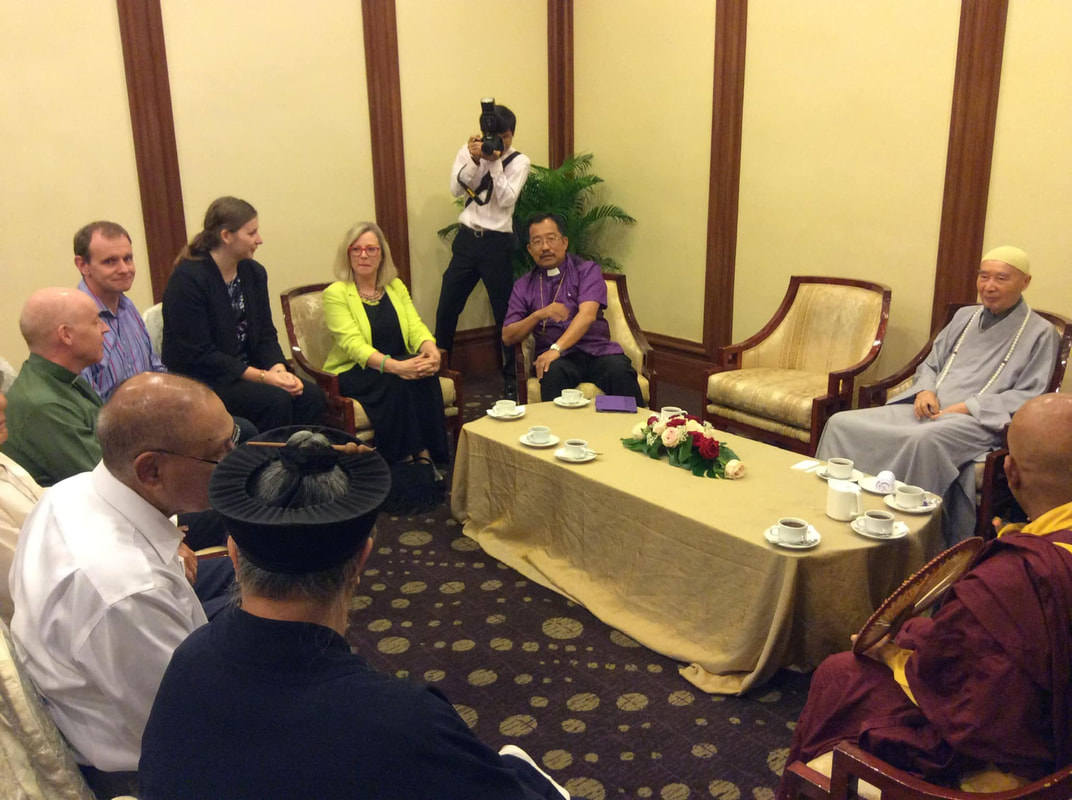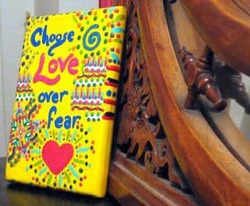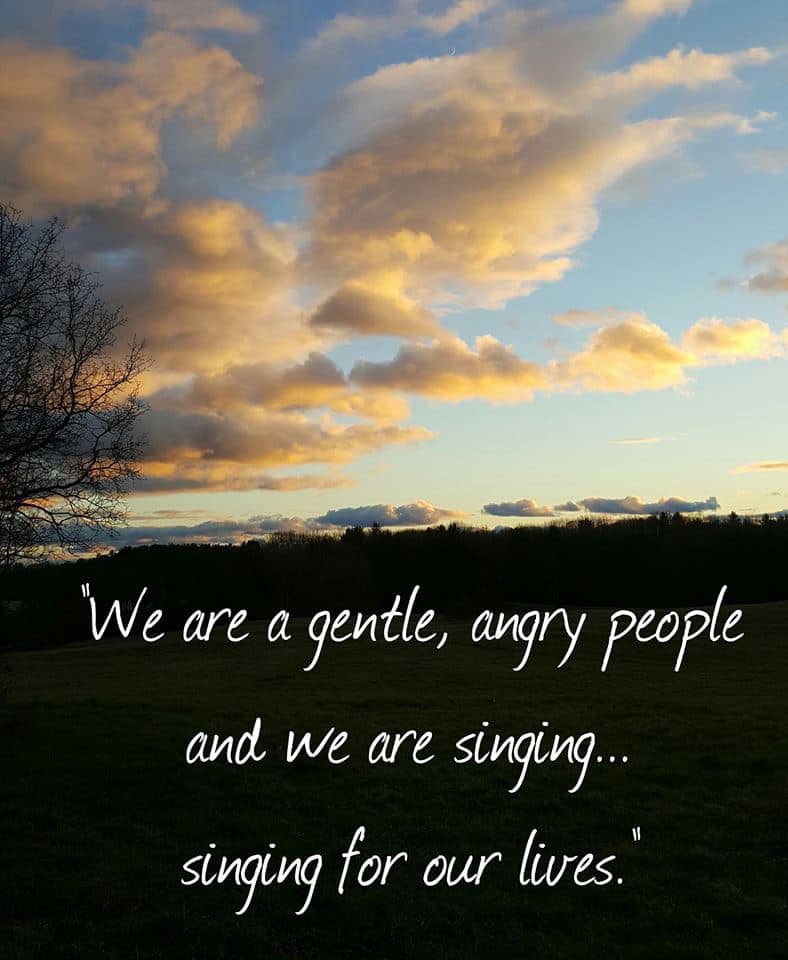 One interesting contemporary term I’ve found helpful recently is ‘onlyness’ - in both its negative and positive aspects. ‘Onlyness’ certainly speaks to my experience both practically (in negotiating the deafening demands of ‘sameness’ and ‘togetherness’ in world and church) and spiritually (in seeking sources, connections and pathways to flourish). Negatively, as this week’s inaugural LGBTIQ+ Leadership Summit in Sydney highlights in its introduction, despite significant advances (especially for L & G folk - T & I have a little more to see) queer ‘onlyness’ continues to be an issue in business and public life (even without including church spaces) and it is still hard for so many of us in simply pursuing our careers and vocations: ‘A 2020 McKinsey report identified that LGBTIQ+ staff are more likely to encounter microaggressions, experience sexual harassment (especially women), and become disengaged within their organisation due to “onlyness”. Despite the overwhelming ethical and financial business case for LGBTIQ+ inclusion, it simply hasn’t happened. It is reported too often that LGBTIQ+ staff are excluded from promotion, are overlooked by superiors, and concerns regarding their gender and sexual orientation are dismissed.’ Being queer in the Church (even more tolerating and passively ‘inclusive’ spaces) sometimes feels like such ‘onlyness’ with bells on (sometimes the sort of bells tolled perhaps to warn people of the plague?). In the best of our mainstream Churches the obsessions with institutional ‘unity’, limited ‘brand’ identity, and not ‘rocking the boat’ also militate against receiving the gifts of ‘onlyness’ - even though they are an essential part not only of the continuing features of spiritual health in Churches but are also pathways forward if they were fully received. The reality is that ‘onlyness’, spiritually speaking and in many manifestations, has always been essential to positive life and change in secular and faith spaces. A key saving grace of both my native C of E (Anglican), Reformed ‘liberty of conscience’ and wider Christian tradition has always been those who have lived into and out of their ‘onlyness’ - for it is from the depths of spirit, inner truth, our authentic dreams and stirrings, that true flourishing comes. We are most certainly created to be social creatures, and our onlyness bears fruit and is enriched in mutual relationship with others, especially where they seek to honour and share their own ‘onlyness’. Yet so much remains, and rises afresh, to work against this - not least sadly in so many Church spaces - as organisations, communities and individuals settle for conformity and complacency (as well as coercion at times), resting on outdated assumptions and harmful stereotypes, unchanging inherited or ‘functional’ structures, and suspicion, or worse, of ‘onlyness’ (even in some faith traditions which speak of ‘conscience’ and being ‘prophetic’). The LGBTIQ+ Leadership Summit puts it clearly: ‘LGBTIQ+ leaders have a strong legacy of driving positive change – even in the most difficult circumstances. In the 2020s, an era of the socially aware and responsible consumer, large organisations cannot afford to merely provide lip service to LGBTIQ+ inclusion.’ The same might be said of other leaders among us who lead from out of their ‘onlyness’ - not least the extraordinary First Nations leaders who have walked with, inspired, and strengthened me in singing new life in faith spaces (and without whom I’d have given up long ago) Like ‘onlyness’ however, such people not only need honouring, but supporting and releasing into greater life.
0 Comments
I’m angry again today - and with good reason, especially having just read a particularly heart wrenching cry of anger from an Anglican priest who has expressed so well their own anger at ‘straightsplaining’ so-called allies and the appalling personal cost upon him (I know, I feel and empathise with that pain on every level). As he says, we can usually cope with much of the reactionary stuff but it is what I call (straight and narrow) ‘passive inclusion’, accompanied by the continual injunctions (by those with comfortable privilege) to continuing ‘patience’, ‘calm’, and ‘good (aka cheap) grace’ that really burdens and eats away at souls, lives and ministries.
One of the things Churches really struggle with is anger - not least Anglicans (born of ‘moderating’ control and English upper/middle class ‘restraint’) and (in my experience) often worse still, the Uniting Church (born of the bureaucracy and functionality that contains its own particular restricted range of Christian diversity). Yet too much of even the best of mainstream Church life has stoked, and continues to stoke, anger which needs to be properly acknowledged, heard and engaged with (not least by empowering, not silencing or sidelining, the huge gifts queer people are to every space, not least the spiritual). Sometimes I just wonder what Jesus it is that Churches read - but then personally I’ve never yet called those who hurt me ‘broods of vipers’ and the like, so perhaps I’m also failing on that score?! I don’t expect Australian Anglican avoidance and maintenance of the straight, still largely boys, club to change quickly - nor the UCA’s complacency and irritating self-satisfaction about its often pleasant but limited ‘inclusivity’. They are both changing slowly - and this week’s announcement of a queerphobic breakaway ‘Anglican’ body is partly a sign of that change and an admission of that viperous tendency’s failure to win over others. Queer people of faith (especially local Anglicans this week) will continue to do it tough in many ways, but we won’t be crushed, because we are not only essentially gentle in spirit as well as vitally angry, but we are also extraordinarily fabulous and incredible gifts to our struggling world and to any Church that will not simply ‘include’ us but celebrate with us and learn from us. As the old Judaean said, ‘those who have eyes to see, and ears to hear’… Meanwhile, some of us will keep on singing - and will also sing for those who are denied their voices, and for those who can sing no longer - for why wouldn’t we sing into being such wonderful gentle, angry, gifted, loving lives? 🏳️⚧️🌈 With huge ❤️ and 🙏 for all those doing it really tough right now. You are loved and more precious than you can ever know 😻  I learned today of the death of the Venerable Master Chin Kung, one of the world’s spiritual leaders (in the Pure Land Buddhist tradition) and someone who enlarged my life in many ways, particularly in the wonderful relationships he helped nurture among so many different people in Toowoomba and many different countries across the world. The picture above is from one of the international journeys some of us in the Toowoomba City Goodwill committee took with the Venerable Master - here in Singapore, en route home from one of the UNESCO peace conferences he arranged and we attended in Paris. So much else has been nurtured however through the peace initiatives the Venerable Master nurtured through the Pure Land community he inspired - including, not least, in Toowoomba. The Venerable Master, like Hans Kung, believed that people of faith could be forces for peace and good in our world, especially where they worked together, with people of all cultures, drawing on the best of all faith and human wisdom, because ultimately all is drawn from the same source and we walk best together. Indeed, without faiths working together, we lack and become harsh. He encouraged faith leaders always, daily, to share what we have which can build up, as he did daily in his teaching, whatever else he was doing and wherever he was in the world. He believed so much in the power of loving kindness, attentiveness, making connections (across traditions, cultures, centuries, and any distinctions) and he helped us in that work. His generosity also included being a partner in our Toowoomba City Labyrinth installation at St Luke’s Toowoomba - a continuing symbol of multicultural and multi faith walking together. The Venerable Master’s legacy will, I know, live on and flourish - in the lives of all who knew him, especially his Pure Land communities who feel his loss so deeply at this time. My own love and prayers go out to my dear friends in Toowoomba in this, with thanksgiving.  A word re current Lambeth Conference happenings - but it applies to many others too… I’ve always struggled with many faith labels people have tried to stick on me but I’ll still accept ‘ecumenical’ - in the true, big, sense of ‘the whole inhabited earth’, ‘justice, peace and the integrity of creation’, seeking and honouring beauty, truth and goodness wherever it can be found and nurtured, and building on the extraordinary depth of ‘ecumenical grammar’, spiritual nuance and deep relationships developed in the past - and I remain passionately committed to working with anyone who seeks that, whatever label, culture or tradition. That’s been part of the joy of my ecumenical - and interfaith - journeys: discovering others (from Catholics to Pentecostals, Muslims to Wiccans, deep souled Orthodox and big hearted Evangelicals , and those who eschew any ‘faith’ identification). Such people give meaning to the true ‘oneness, holiness, apostolicity, and catholicity’ which others bleat on about but too often only use to bruise and beat up others. Today’s Christian institutional formulations are so typically small, fearful and self-absorbed in that respect - so no wonder we continuing ecumeniacs struggle to be heard. It saddens me that Churches have so little interest in real growth (in humanity and spirituality - not institutional numbers, boundaries and ‘resolutions’) and so neglect the ways forward that ‘receptive’ ecumenists have sought to share - asking not what we can get accepted by others, but what gifts of ‘the other’ (especially the marginal and ostracised ‘other’) we desperately need for our own growth and our mutual survival, never mind flourishing, on this fragile threatened planet. I know that in every great faith tradition - and not least in the Anglican ones I know best (including some fine bishops now at Lambeth) - that others share my feelings and seek to live faith more abundantly. May we keep such faith and join our hearts and hands with those who also share that vision, wherever they be and come from, choosing love not fear. |
AuthorJo Inkpin is an Anglican priest serving as Minister of Pitt St Uniting Church in Sydney, a trans woman, theologian & justice activist. These are some of my reflections on life, spirit, and the search for peace, justice & sustainable creation. Archives
July 2024
Categories
All
|

 RSS Feed
RSS Feed